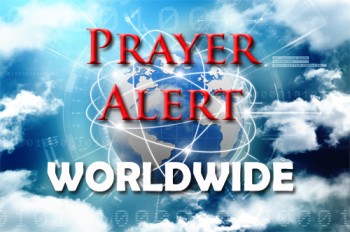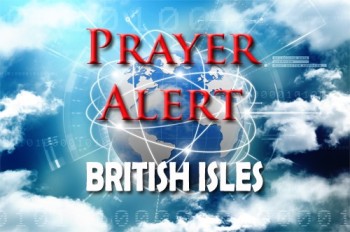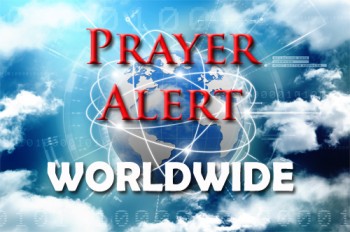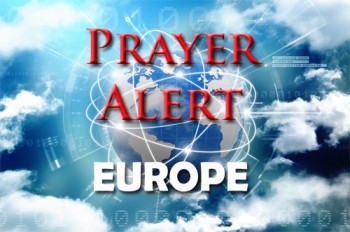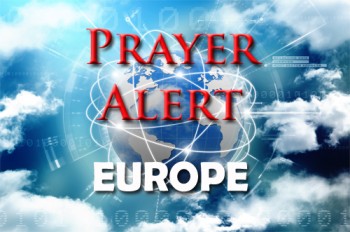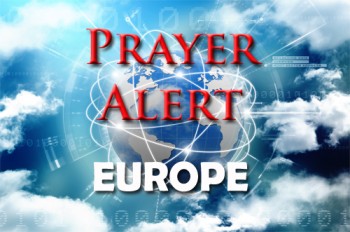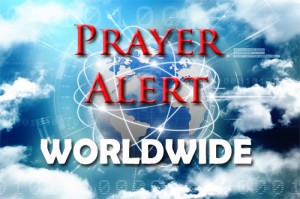Displaying items by tag: fires
Brazil: ‘If these fires continue, we indigenous people will die’
The Amazon is experiencing a huge environmental crisis; fires have ravaged over 62,000 square kilometres of forest, exacerbated by Brazil’s most severe drought. The fires, usually deliberately started by loggers, miners, and farmers seeking land, are decimating the region. Raimundinha, who leads an indigenous firefighting brigade, has warned: ‘If these fires continue, we indigenous people will die’. Respiratory issues are already affecting her family, and the fires are increasingly encroaching on lands which in theory are protected by the government. The drought has not only fuelled these fires but also drained rivers, making daily life for some nearly impossible. With dwindling resources and rising temperatures, the situation in the Amazon highlights the fragile balance between human activity and environmental conservation, as well as the catastrophic effects of climate change.
Discarded cigarette causes nature reserve blaze
The fire that broke out at Lions Hill in Dorset on 26 April has devastated an area of nature reserve. The 42-hectare heath is a Site of Special Scientific Interest, a wetlands area considered to be of international importance. Fire crews said the blaze was sparked by a discarded cigarette. Later that day the Fire Service tweeted, ‘Sadly, our crews have attended another heath fire this evening. This fire was also started by a discarded cigarette: please dispose of these responsibly.’ Dorset firefighters have dealt with a spate of heath fires, including one started deliberately at Canford Heath. The service said, ‘These avoidable fires tie up so many of our resources which could impact a response to other emergencies.’
Global weather challenges
In the USA a powerful storm sent waves crashing into sea walls and caused flooding in coastal communities from New Jersey to Maine. In Australia bushfires have forced thousands to flee Covid-19 lockdowns in an ‘unprecedented situation'. By 3 February the fire had destroyed 71 homes and injured six firefighters. In addition to the dangerous blazes, tropical storms churning off the coast could help to contain fires. Also widespread record-breaking snow pummelled northeast America, shattering centuries-old records, and is expected to spawn another whopper next week. Pray for God to watch over all who have lost their homes and businesses to the Australian fires. May they be able to achieve social distancing in relief shelters. Pray for God to give peace to people experiencing travel disruption, particularly those in stranded vehicles. Pray for aid and help to reach isolated rural communities, particularly those with power cuts.
Greece: another refugee camp fire at Samos
According to the UN Refugee Agency, there are approximately 19,600 migrants and refugees on the Aegean islands as of 8 November. A series of large blazes destroyed Greece's largest migrant camp, Moria on the island of Lesbos, back in September. The Greek authorities said that the fires were deliberately started by the camp's residents. Officials on Samos reported a similar fire at a migrant camp on 2 November, the second blaze to hit such a facility over the last ten days. The cause of this fire has not yet been determined, and the number of migrant tents destroyed by the blaze is not yet known.
Ukraine: fires, floods, conflict
Forest fires have ravaged several villages in Luhansk in areas held by Russian-backed separatist forces. Water-bombing planes, the national armed forces and hundreds of firefighters are battling high winds and soaring temperatures that are spreading the fires. The governor of Luhansk region suspects the fires were started by arsonists. He hopes that separatists nearby are not attacked as they tackle the blazes but ‘cannot give any security guarantees’. Luhansk is currently divided between Ukrainian control and the self-proclaimed Luhansk People's Republic (LNR) amid an ongoing conflict in the east of the country. More than 13,000 people have been killed so far. Also, recent heavy flooding hit nearly 300 towns and villages in the west of the country. Climate change, illegal logging, and deforestation have all been blamed.
Ukraine: wildfires dangerously close to Chernobyl
Wildfires are just over a mile from the defunct Chernobyl nuclear power plant and a disposal site for radioactive waste. Over 300 firefighters are working to contain the blaze. A toxic cloud rises within sight of the carcass of Chernobyl’s Unit 4 nuclear reactor, the site of the worst nuclear disaster in history. Greenpeace said that the fires were larger than Ukraine’s official estimates and could pose a health risk, saying, ‘A fire approaching a nuclear or hazardous radiation facility is always a risk’. Flames could reach abandoned vehicles at the former plant, causing mighty explosions and spreading toxic fumes and unleashing radiation into the ground near the reactors. The fumes could sweep across vast swathes of Poland, Belarus, Romania, Hungary, Slovakia and Moldova. All are vulnerable: see
Global: storms, floods, mudslides, fires, hurricanes
On 8 June Cape Town, South Africa suffered its worst storm in thirty years. 10,000 people were evacuated, and the military helped to battle multiple blazes which destroyed dozens of homes and damaged a hospital and school. Twenty suburbs were damaged by spreading fires, and whole towns were evacuated. On 14 June severe storms brought down trees and power lines and dumped heavy rain, hail and tornadoes on America’s plains. These violent storms are now spreading across the Midwest, with damaging winds and isolated tornadoes. The Chicago area has had flooding and power lines down. In Bangladesh over twelve inches of rain have fallen between 12 and 15 June, triggering deadly mudslides that have killed 147 so far. The north Indian province of Mizoram (predominantly Christian) has suffered the worst floods in living memory, with much damage and many deaths. June marks the beginning of the Atlantic hurricane season, and forecasters predict tropical systems forming in southwest Gulf of Mexico from 19 July. See:
